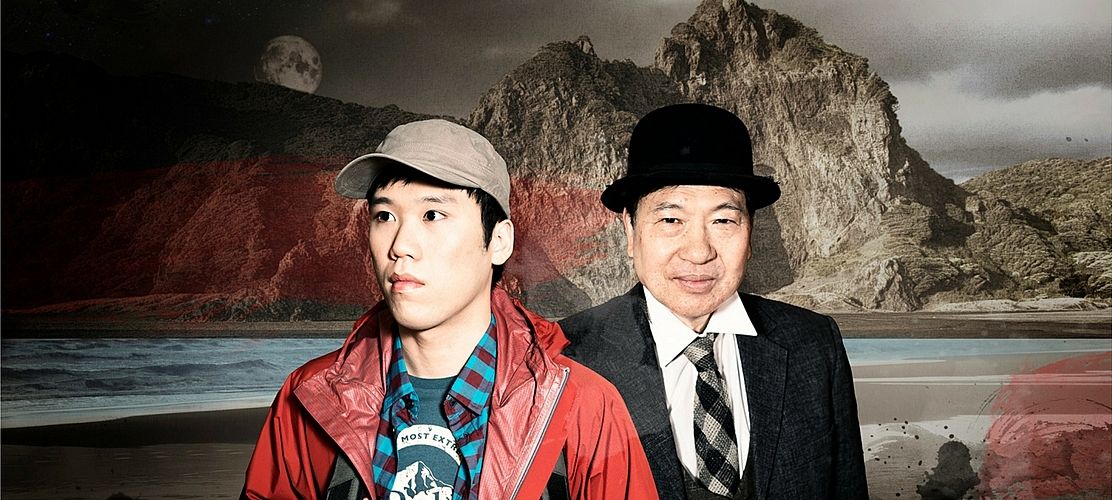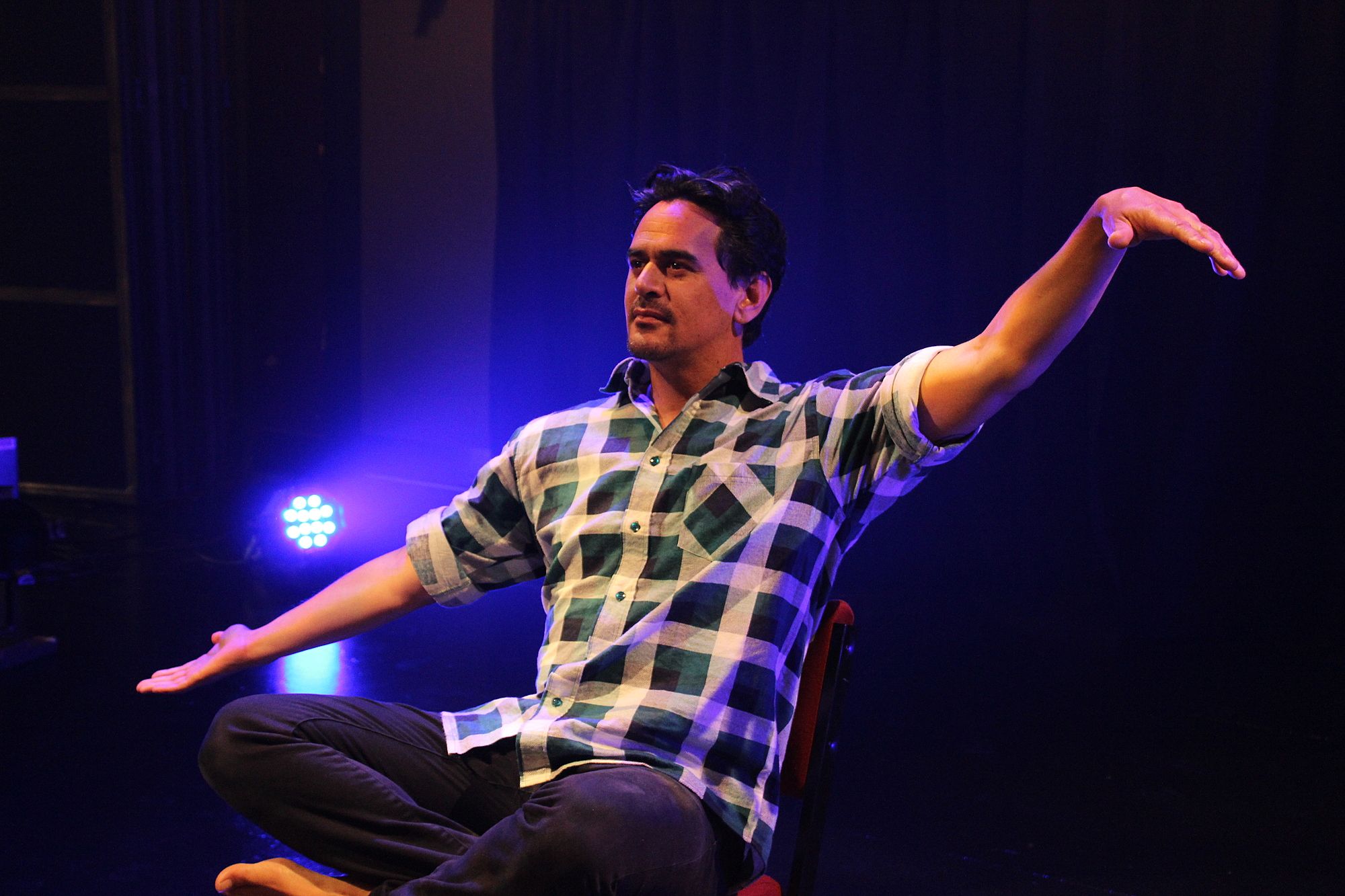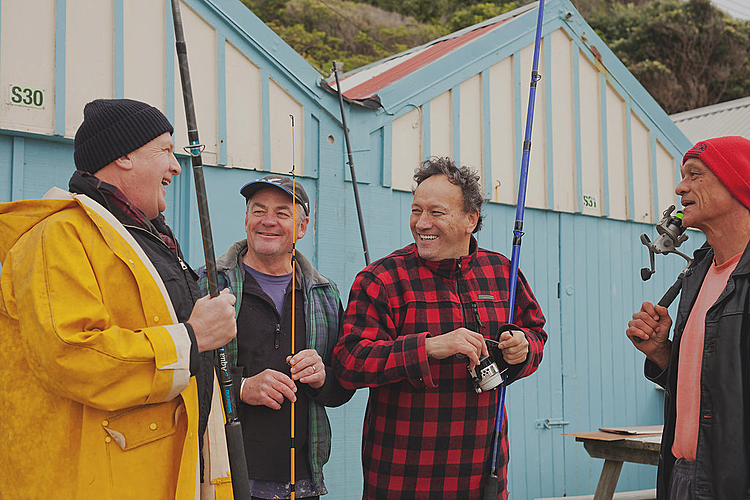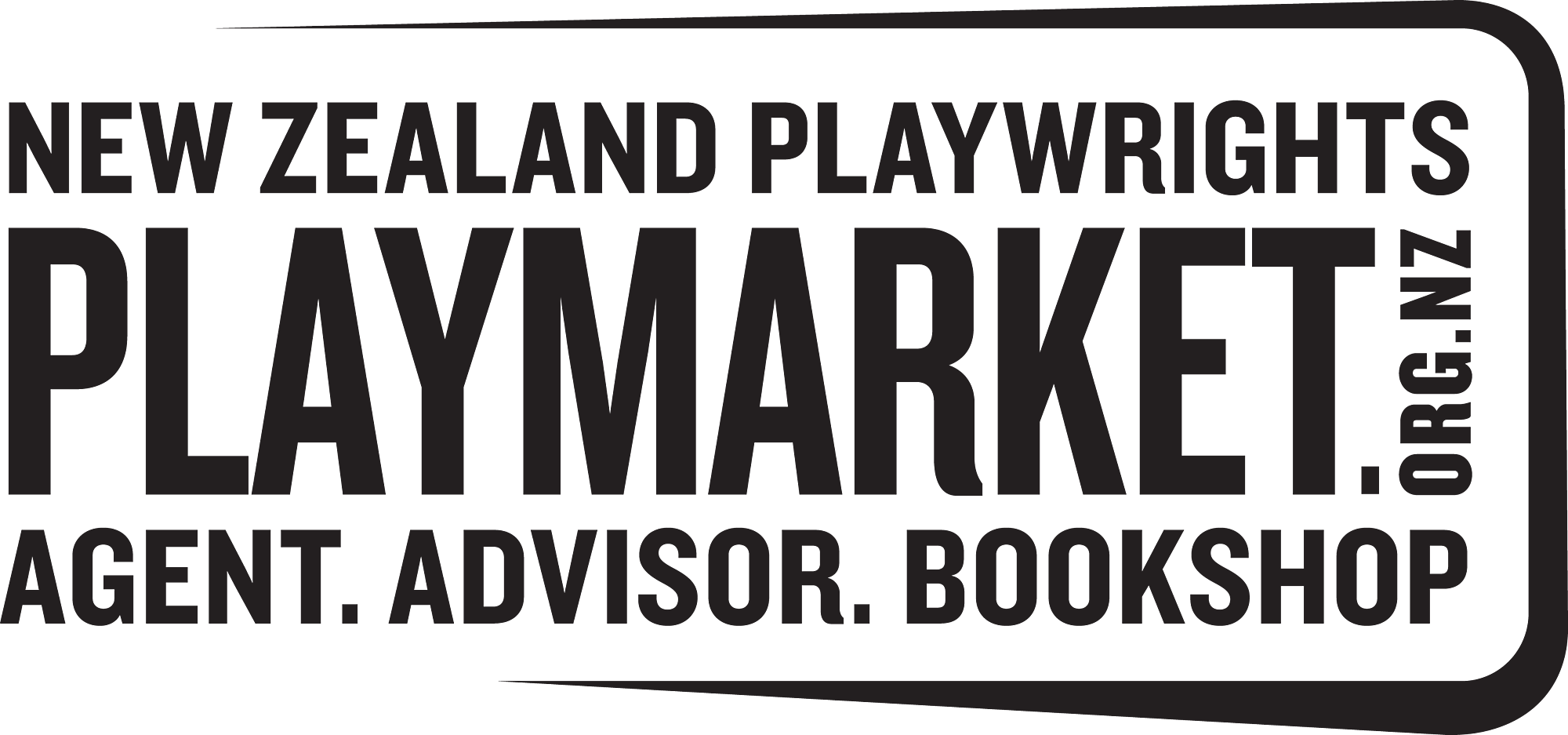Good to be here, Dargaville! Playwrights Jamie McCaskill, Renee Liang and Jess Sayer on Process
We're excited to be partnering with Playmarket this year to unearth great writing and other gems from their archives, and to showcase our country's best playwrights.
We're excited to be partnering with Playmarket this year to unearth great writing and other gems from their archives, and to showcase our country's best playwrights. This conversation between playwrights Renee Liang, Jess Sayer and Jamie McCaskill first appeared in the Playmarket Annual 2015. Both Jamie and Renee are about to open new works in the Auckland Arts Festival.
Jamie McCaskill (Ngati Tamatera) is a playwright and founder of Tikapa Productions whose work will be familiar to Auckland audiences from his play Not In Our Neighbourhood which was part of Auckland Arts Festival 2016. Jamie's newest play The Biggest, which has already had a successful season in Wellington is set to open tonight at Q Theatre as part of the Auckland Arts Festival 2017.
Renee Liang is a paediatrician and prolific playwright (now also librettist) who is about to premiere trilingual opera The Bone Feeder in the Auckland Arts Festival 2017 (image above). The opera, composed by Gareth Farr, is based on Renee's 2010 play of the same name.
Jess Sayer is an actor, playwright and screenwriter whose plays Elevator, Wings and Fix have been staged at the Basement Theatre. Jess is a co-writer and actor on popular web series, Auckward Love. In Wellington this month, Jess has a reading of Fix at BATS as part of the Writes for Women play reading series on Wednesday 15 March and a reading of Speak at the WTF! Festival at Circa on Saturday 18 March.
Renee Liang: How did you start writing?
Jess Sayer: My parents were going through a horrific divorce, and I started writing dialogue to try and get it out. I didn’t know I was writing a play. Then I saw The Creditors by August Strindberg, and after that I was inspired. Friends encouraged me to send it in to Playmarket’s b4 25 competition, and then [previous Playmarket Script Advisor] Stuart Hoar encouraged me to keep writing. So I decided I’d go to drama school to learn how to be a writer.
RL: Are you an actor because it will help your writing?
JS: I think they’re useful tools for each other. As a writer you understand script and as an actor you understand motivation. Do you both act as well?
RL: I’m not shy, I do performance poetry, but I prefer to leave the craft of acting to people who are more skilled.
Jamie McCaskill: I wrote out of necessity to get myself on stage. Writing for me was an ‘in’. Then I started appreciating the craft of writing, and found I could give the moment over to other actors. I’m usually involved in my plays some way. I’m looking forward one day to the anonymity of sitting in an audience and watching something I had no hand in.
JS: My first time not being involved as either actor or writer was a production of my play Wings at BATS – that was a surreal experience.
JM: I run a small production company called Tikapa Productions (named for the Firth of Thames where I’m from) with my partner (Kali Kopae), mainly to do my own stuff. We brought in Sonia Hardie who’s a legend production manager, so I can focus on the artistic side of the company – it’s a great relationship we have. I only started directing recently, I do sound design as well. I work with a lot of musos, so bring my mates in to work on a show.
RL: What drives us to write? Is it because you can’t not write? If I haven’t been writing for a while, I feel low.
When I’m writing, I get into it for about four days. If anyone tries to talk to me they just die.
JS: I wouldn’t know what to do with my time otherwise. When I’m writing, I get into it for about four days. If anyone tries to talk to me they just die, but after that I find it hard to come back to. I need a workshop or something to make me revisit it.
JM: I find it hard to read my own stuff, so I miss deadlines out of procrastination.
RL: Do you push yourself? I’m always trying to do something I haven’t done before. I just finished writing an existentialist tragicomedy because I’ve never done one before. I find it really exciting that I can just try something in theatre and train myself.
JS: I don’t think of much else than the story or characters – it will hit me and then I’ll write it out. It’s never planned. Structure is my weakest point. Sometimes I’ll get 50 pages in before I realise what’s happening. I write dark comedies – the knife-edge of sanity really interests me, and strong roles for women. What I have to say makes me different to my peer group. I watch people on the street, get whole new characters out of just talking to someone, or the way they wave – I’m creepy.
RL: You know that mental tape recorder writers have? So if you’re in a situation – say a really bad audition, or someone is a bitch, at least you can press record and store material for later use.
JS: You catch a bit of dialogue and then you start following them around the room...
RL: A tip I give students is to sit at bus stops and write things down. Have you ever hidden away at a party just to quickly write something down?
JM: I have typed on my phone.
JS: Me too.
RL: Has where you’ve lived shaped what you write?
JM: I grew up in Thames, but moved away when I was 17. I was back there for three years recently – now I’m writing a trilogy getting deep in the guts of raw rural men – how racist and homophobic they are. There are some gold characters in those small towns. Where did you grow up Jess?
JS: I was born in Whangarei, then at five we moved to Brunei. We got to travel a lot – when we moved back, even as an 11-year- old I could see how people treated each other, how some didn’t have broad minds. It was a beautiful place to grow up though. Everyone you meet plays a part in what you have to say and how you see things.
One time we did a show in Dargaville, this woman in a mobility scooter decided to leave. So halfway through I hear this “beep beep beep” and I’m like, “good to be here Dargaville!”
JM: I remember one time we did a show in Dargaville, this woman in a mobility scooter decided to leave. So halfway through I hear this “beep beep beep” and I’m like, “good to be here Dargaville!” We only did one show but it was full. They came with boxes of beer and stood around the walls.
RL: Do you find you have a writer label? That once you’ve written something, you’re expected to keep pumping out the same stuff? And also, is there ethnic labelling?
JM: I think there are certain responsibilities as a Māori artist, to my own community, which is fine. It used to bother me but less now that I’m more confident in what I have to offer. There’s the stereotype, sure – “be a nice Māori, don’t scare anyone, play happy music.” The whole discussion about what is Māori theatre – it’s so nebulous. Aroha White for example has written a Māori sci-fi play that doesn’t fit into the mould.
RL: We all write according to our backgrounds right? Replace Māori with Asian and – really there’s no such thing as an Asian play. I happen to be Asian and I write it, therefore it must be an Asian play. Of course I’m going to write from my background, because those are the things I know.
JM: It can be inspiring for your community to do that, especially young people. I see how Ahi (Karunaharan) has done great things for the South Asian community with his work. But as a writer, you can’t be stuck with just that one thing.
JS: I’ve never really thought about having a label. It makes me really sad to think that people would expect one thing of you and not let you write whatever you like. I don’t think I should be forced into one path of storytelling.
RL: I wanted to touch on that idea of responsibility to community. The flip side is that after writing the stories of one community for a while, you get special access. It can be a double-edged sword. People open up and give me privileged information, but there’s the expectation that I will show it in a good light. Yet as a writer I want to investigate the light and dark.
I worried that I wasn’t getting this ‘Māori theatre’ thing right, maybe even that I was being anti-Māori.
JM: For me there are many different communities – Māori, theatre, and many others. Some practitioners have a certain vision on how things should be presented. When I started writing with a different political edge, I worried that I wasn’t getting this ‘Māori theatre’ thing right, maybe even that I was being anti-Māori.
RL: Non-Māori playwrights are also very scared of coming across the wrong way when writing Māori characters...
JS: That happens even in acting – when my partner and I did (Gary Henderson’s) Mo and Jess Kill Susie some people boycotted the play because we weren’t Māori, even though I am part Māori.
JM: People boycott my shows for not being Māori enough. That’s just the way it is. You don’t want to self-censor, and you don’t want to preach to the converted all the time, but to have their support is good. But you can get through to other people as well. I’ve written this play about Women’s Refuge and people have said, well who are you to write about this, you’re a man. And I just have to accept that some people will choose not to watch because of that.
JS: Do you write for certain people? I usually write with specific people in mind.
RL: My last few plays – I get the actors on board before I write. It can back fire – if they’re then unavailable I find it hard to see anyone else in the role.
JM: I used to write for my mates, but as I’ve got into the craft of writing I’ve started writing more for characters.
I’m going to admit I’m a nerd. I draw graphs and make timelines. I think i'ts just procrastination, but I kid myself it works.
RL: How about writing blocks? Anything you do to get over them? I’m going to admit I’m a nerd. I draw graphs and make timelines. I think it's just procrastination, but I kid myself it works.
JS: I try to write a synopsis, but they just make me feel like my idea is really bad. I usually start writing dialogue and then I get an idea and write more but it’s not in order – it’s messy. Once I get going it will just come out, but sometimes I realise I hate it, and I throw it in this folder labelled ‘shit’ and never look at it again.
JM: I’ve started writing the synopsis first. I used to start with dialogue, but now I write the structure before I put in the dialogue. I find it a much more economical way of writing, because I’ve already got the story sorted. I get the structure stuff from writing for TV.
RL: What draws you back to theatre?
JM: TV is good for the money and the discipline of writing in a structure, but theatre is so much more freeing. You can fuck with your audience, pull them with you. I do theatre as more an expression of different thoughts – I write theatre to change the world.
RL: I’ve noticed that audiences who come to plays tend to be more cerebral.
JS: People come to plays to think. That’s what I like doing – not spoon feeding, having layers and twists and turns and playing with them.
The Biggest runs from Thursday 9 March to Sunday 19 March at Q Theatre
Tickets are available here
The Bonefeeder runs from Thursday 23 March to Sunday 26 March at ASB Waterfront Theatre
Tickets are available here
This article was originally titled How To Change the World and is published as part of our partnership with Playmarket.





